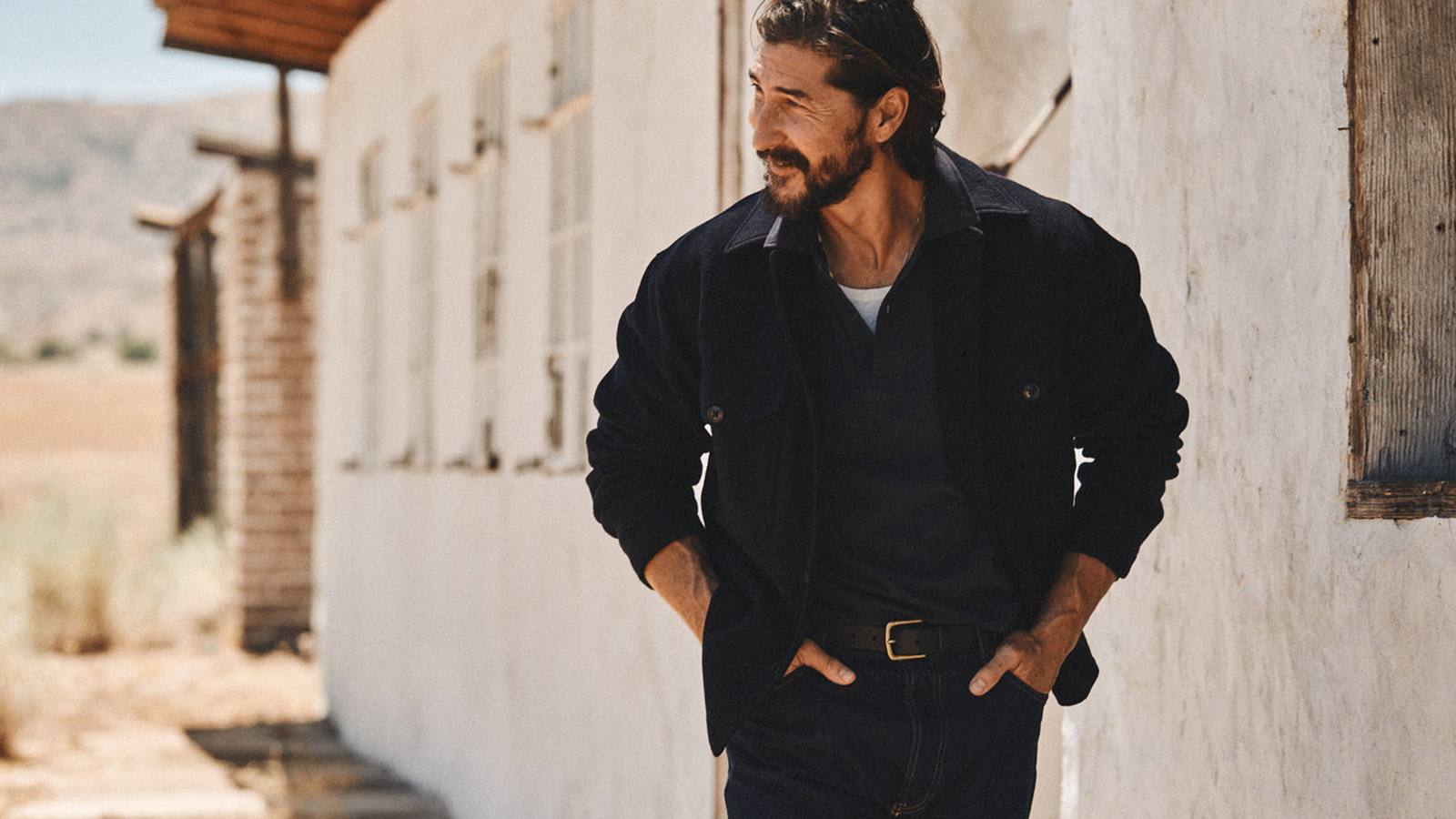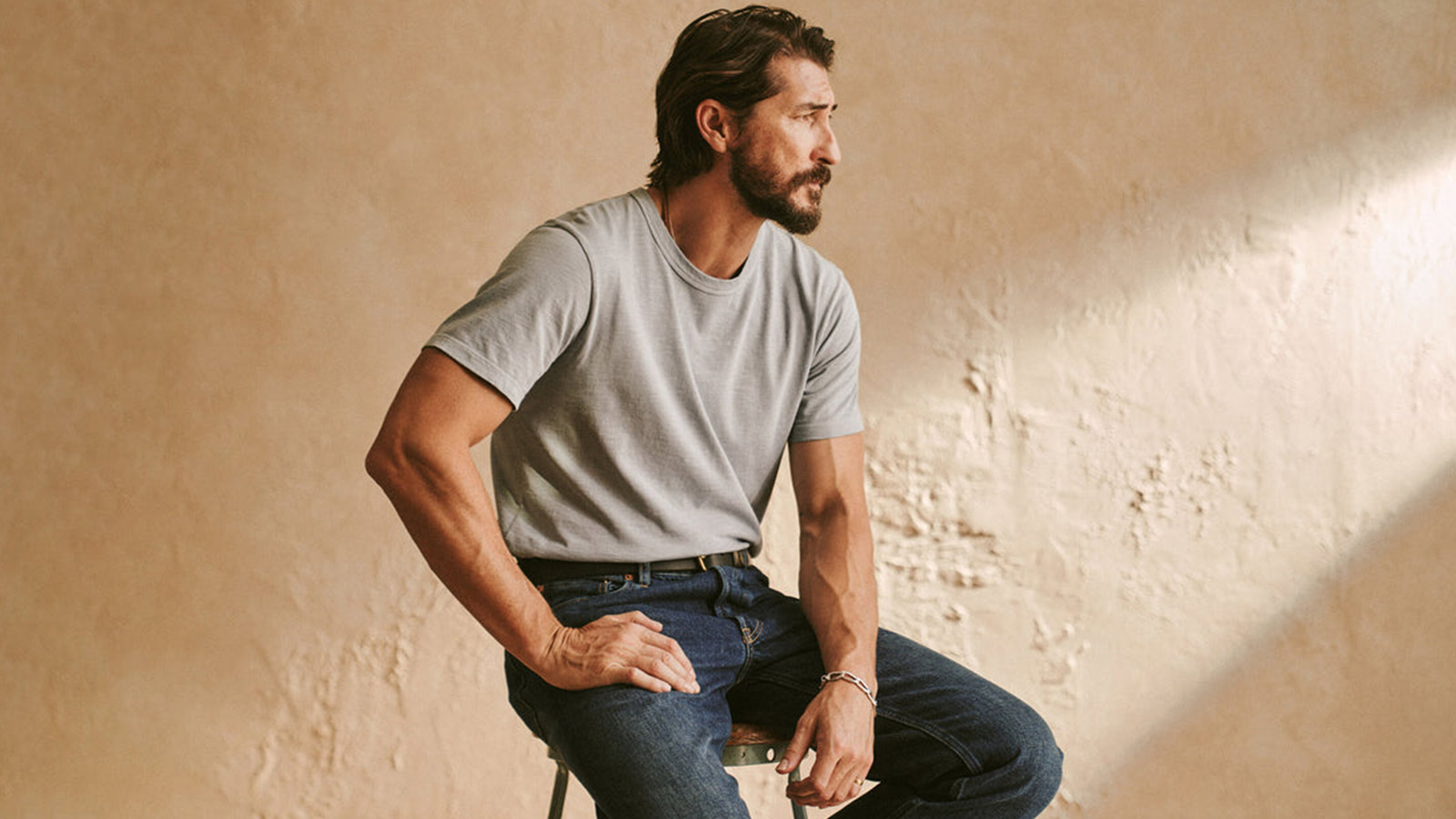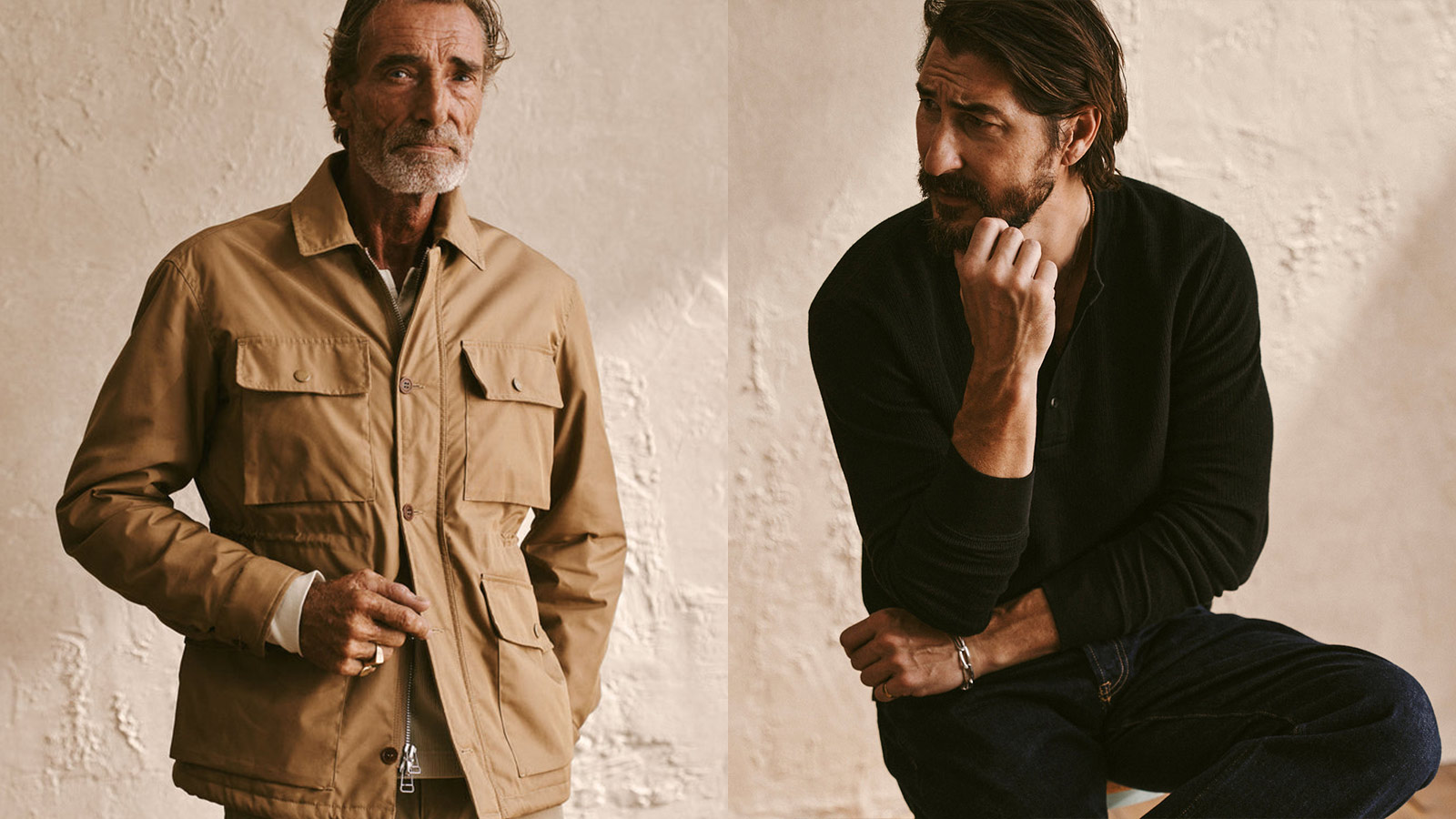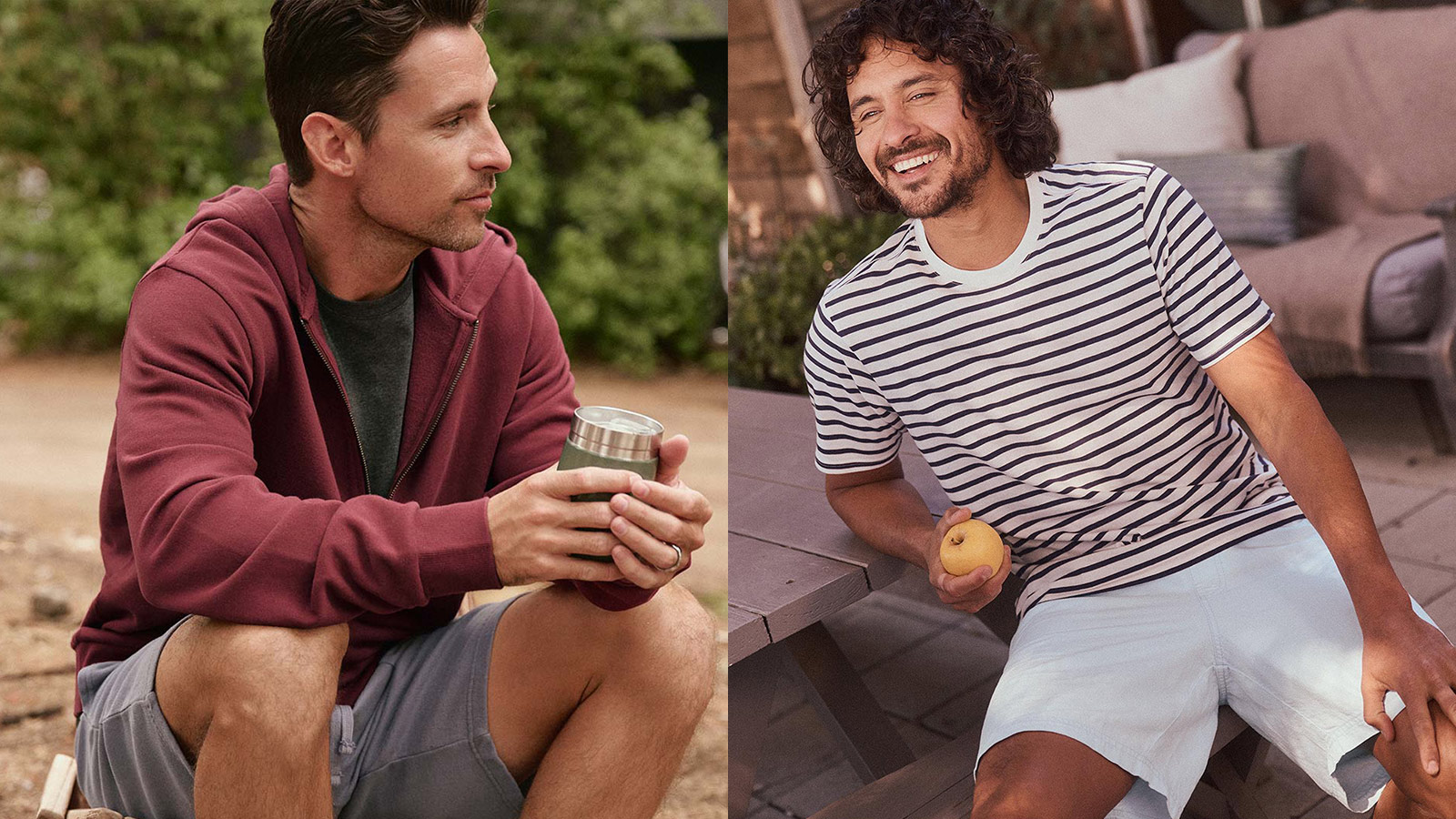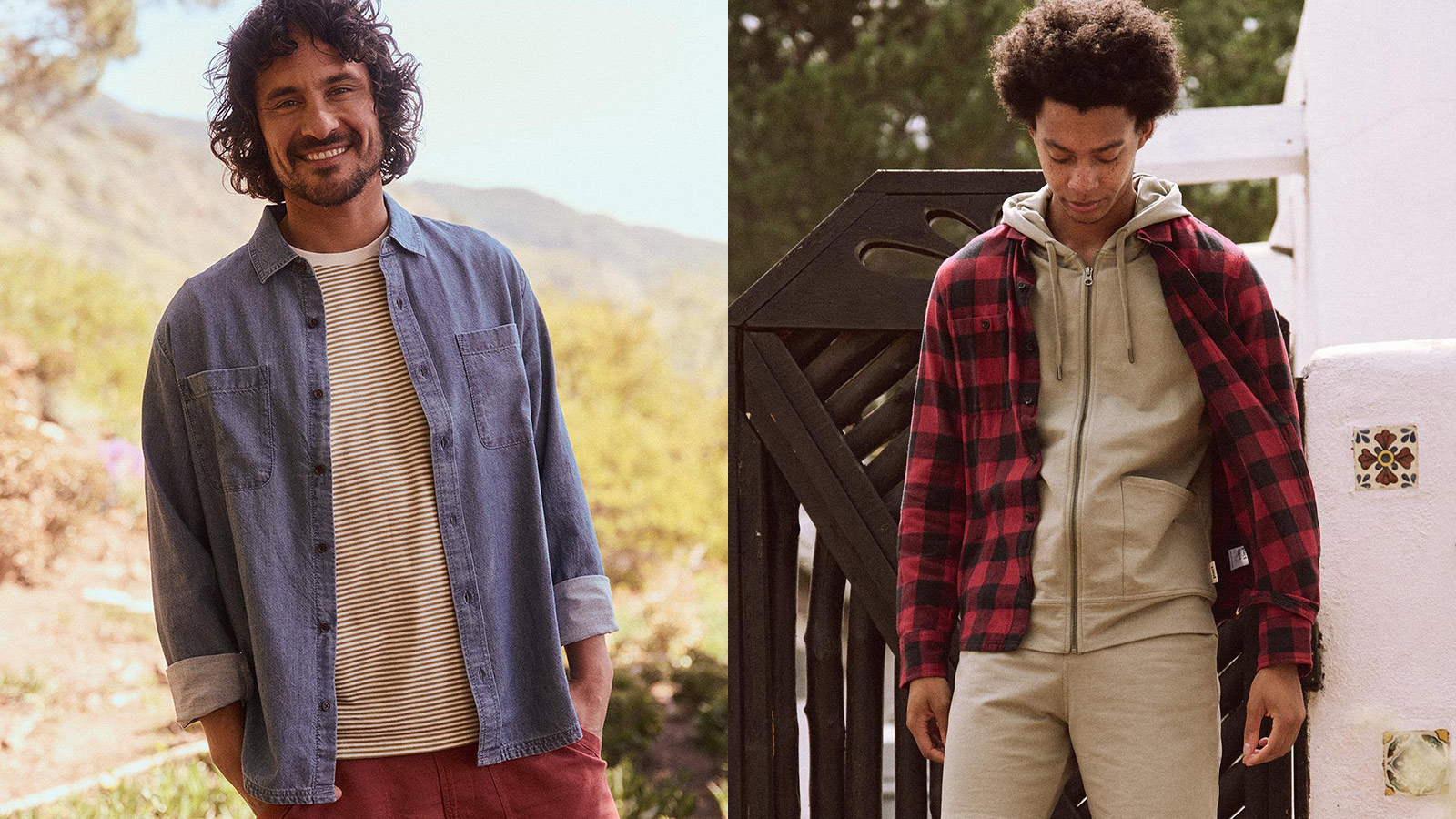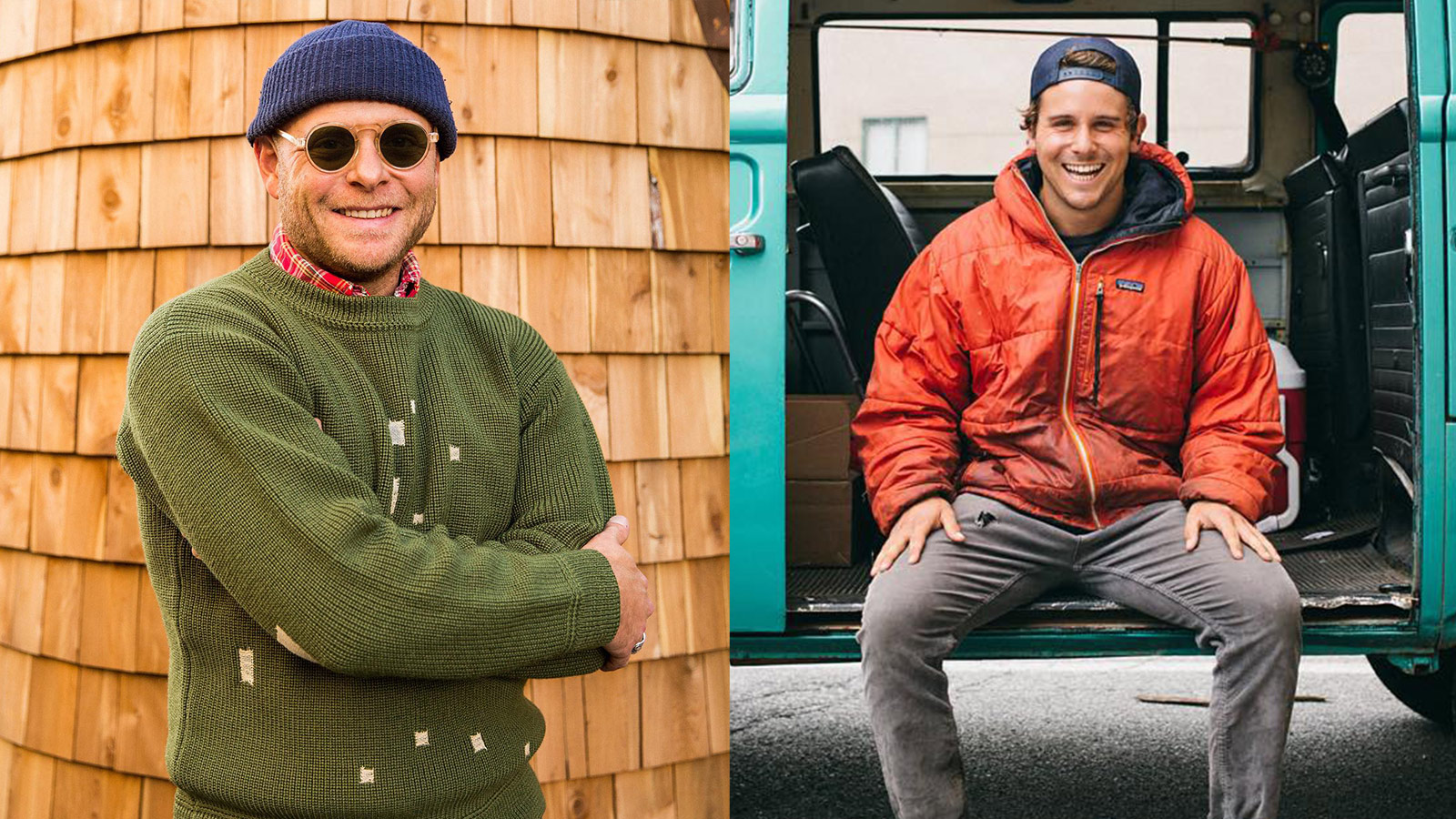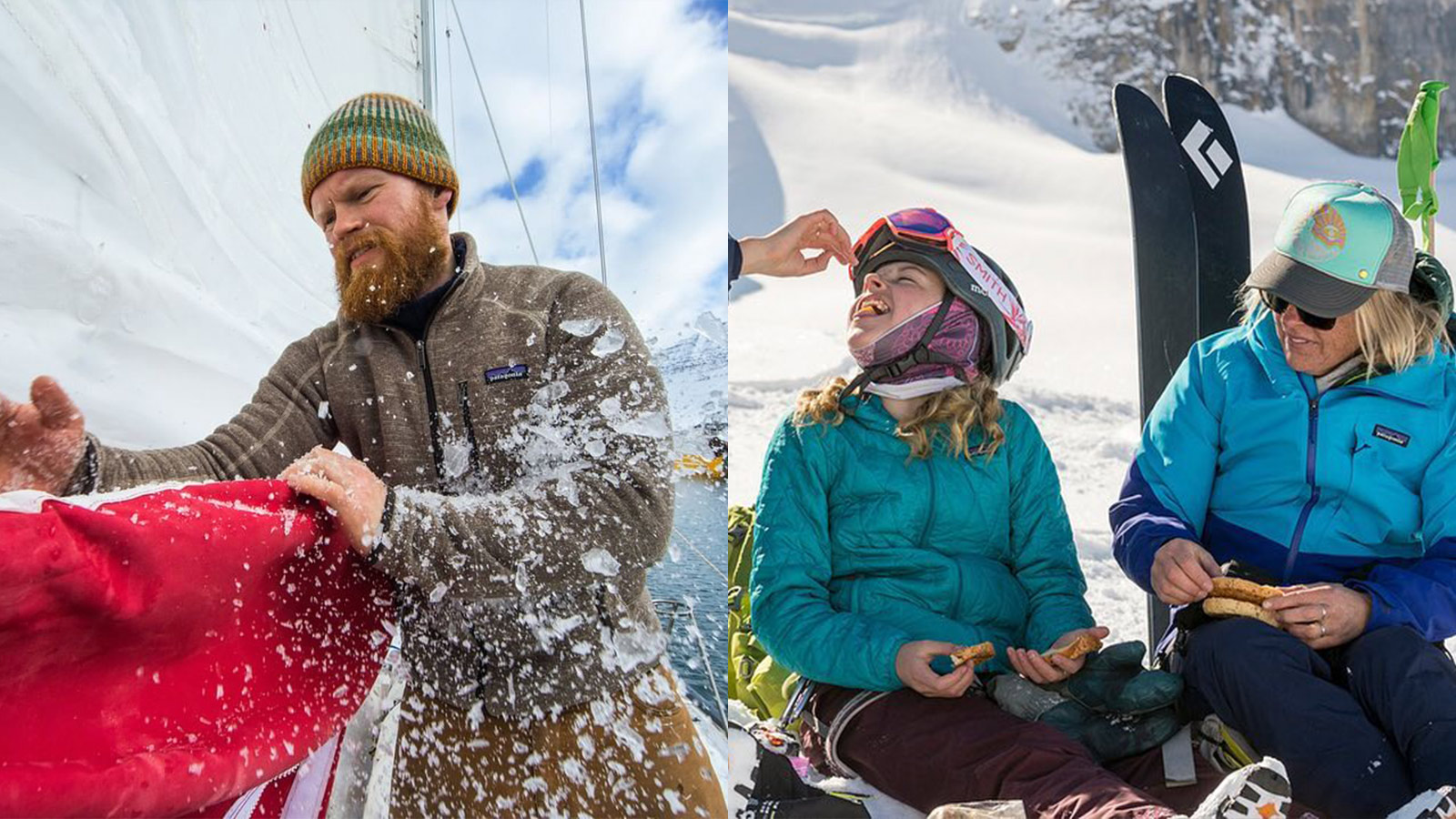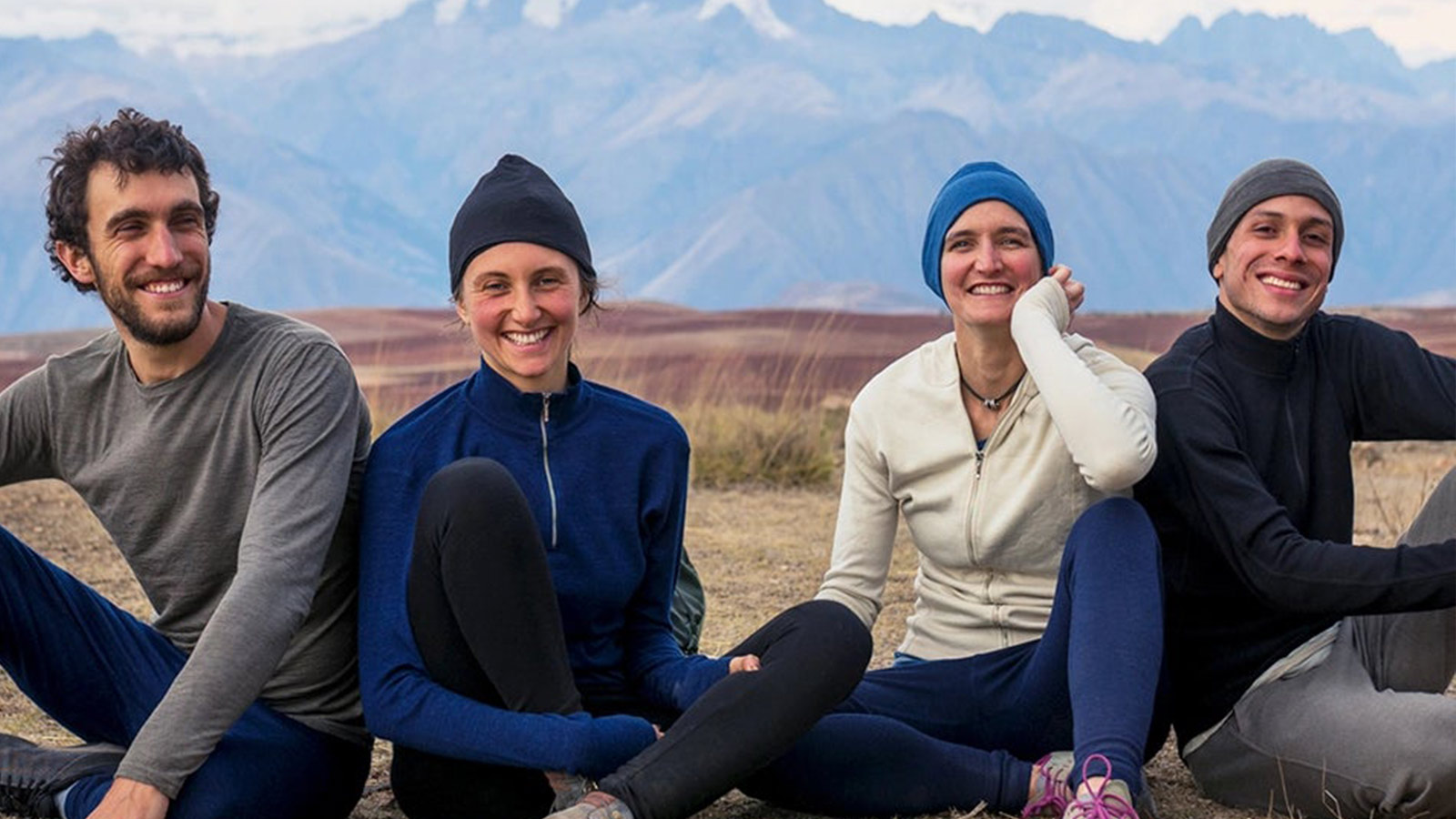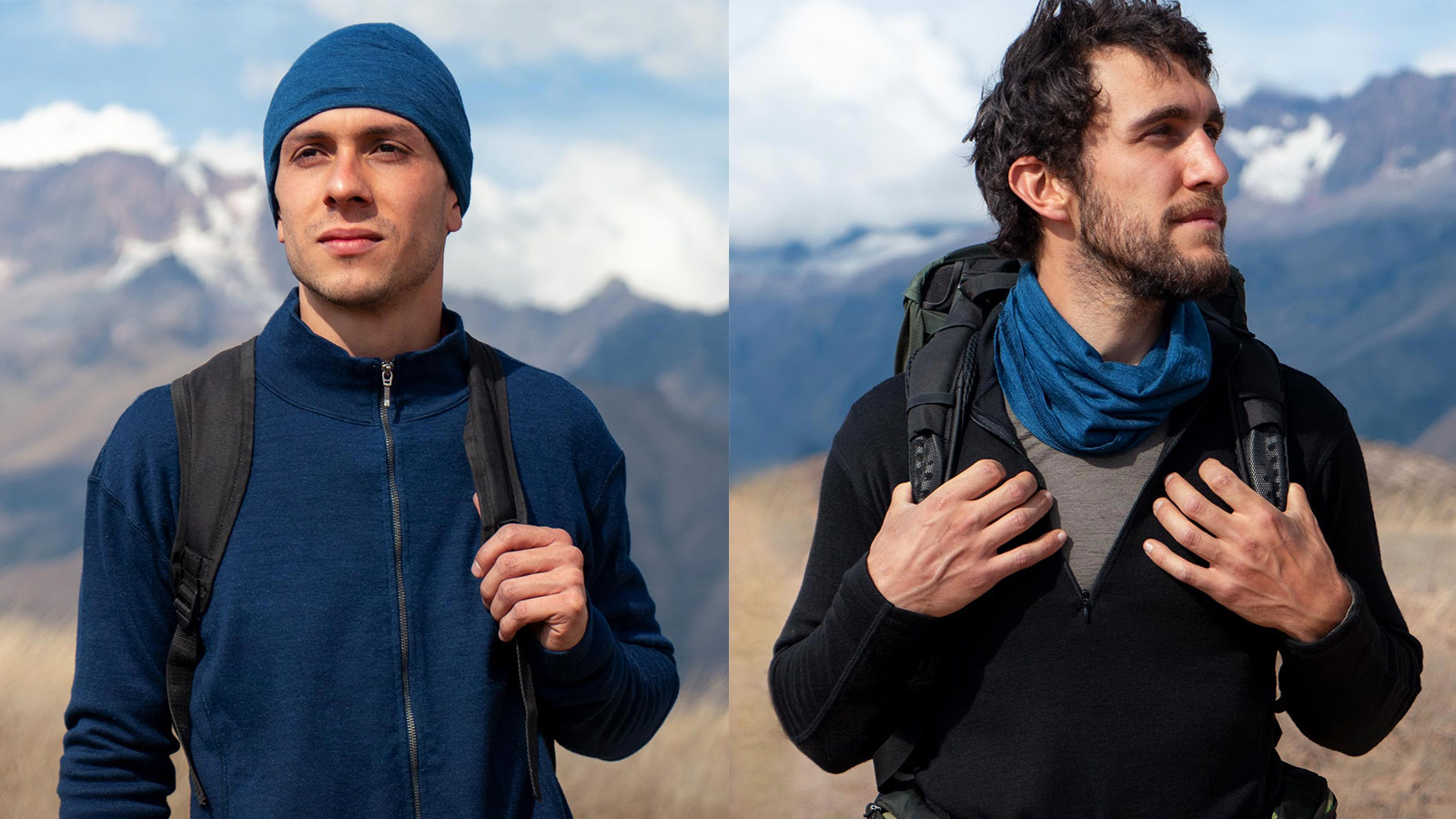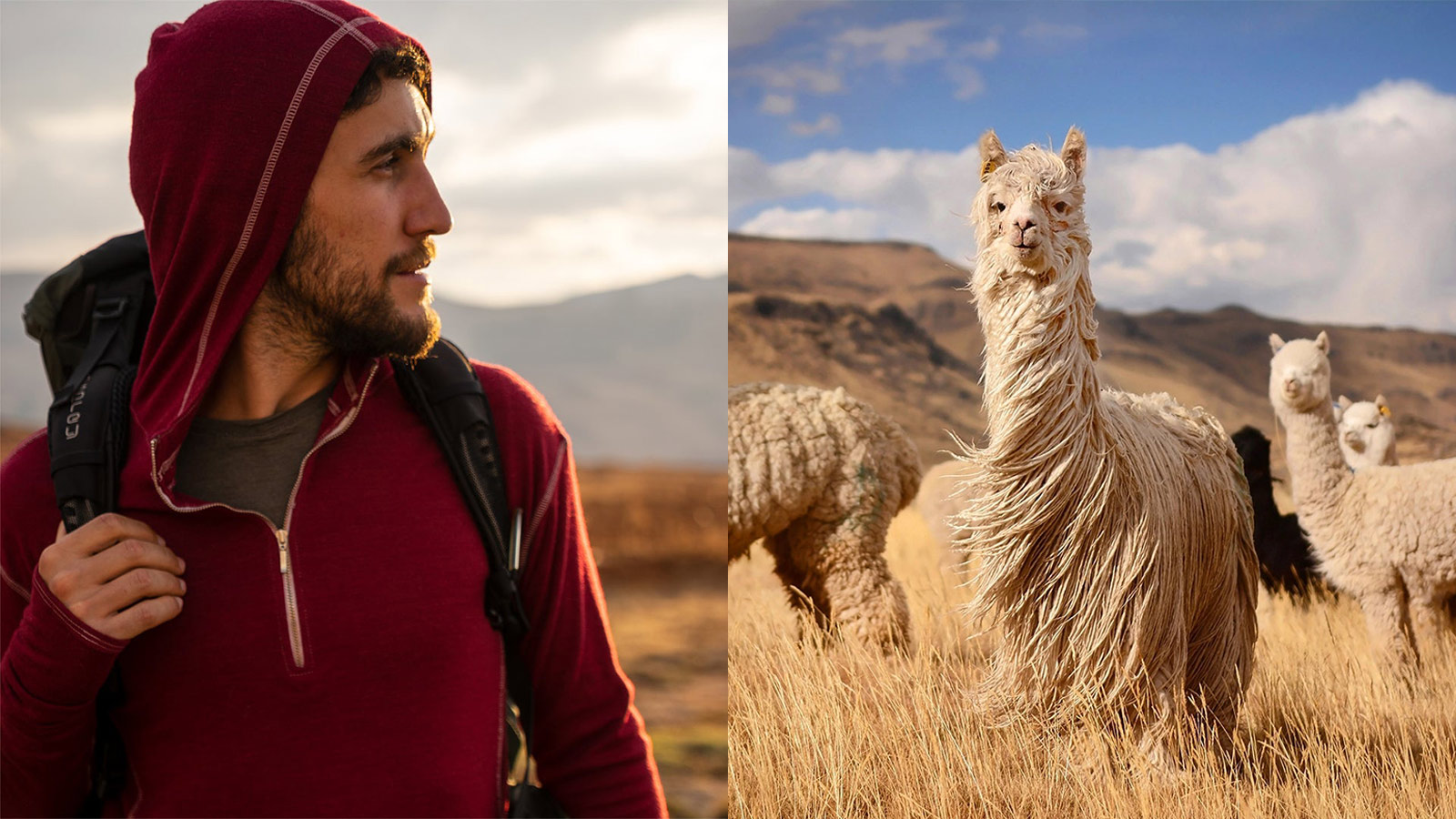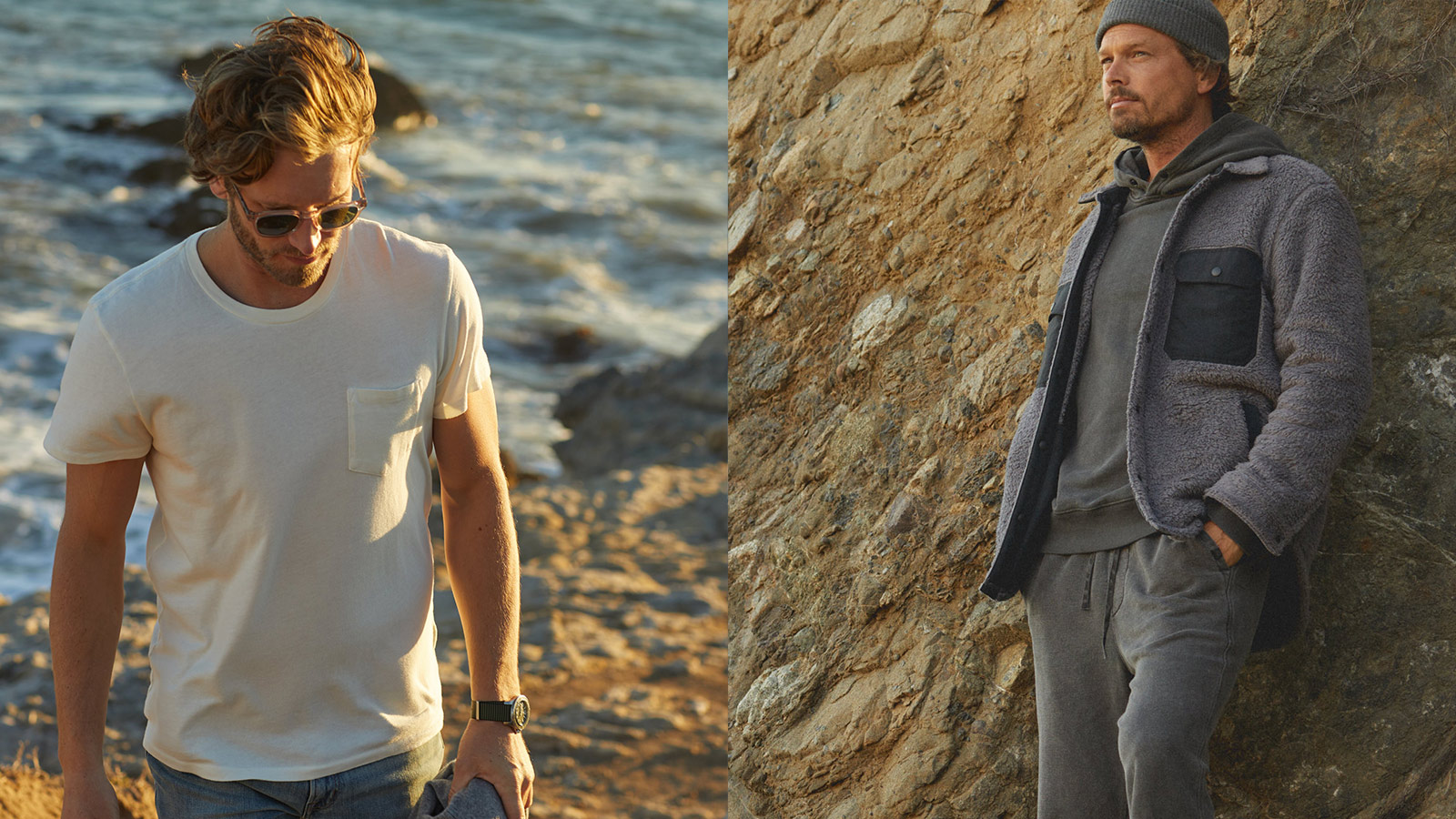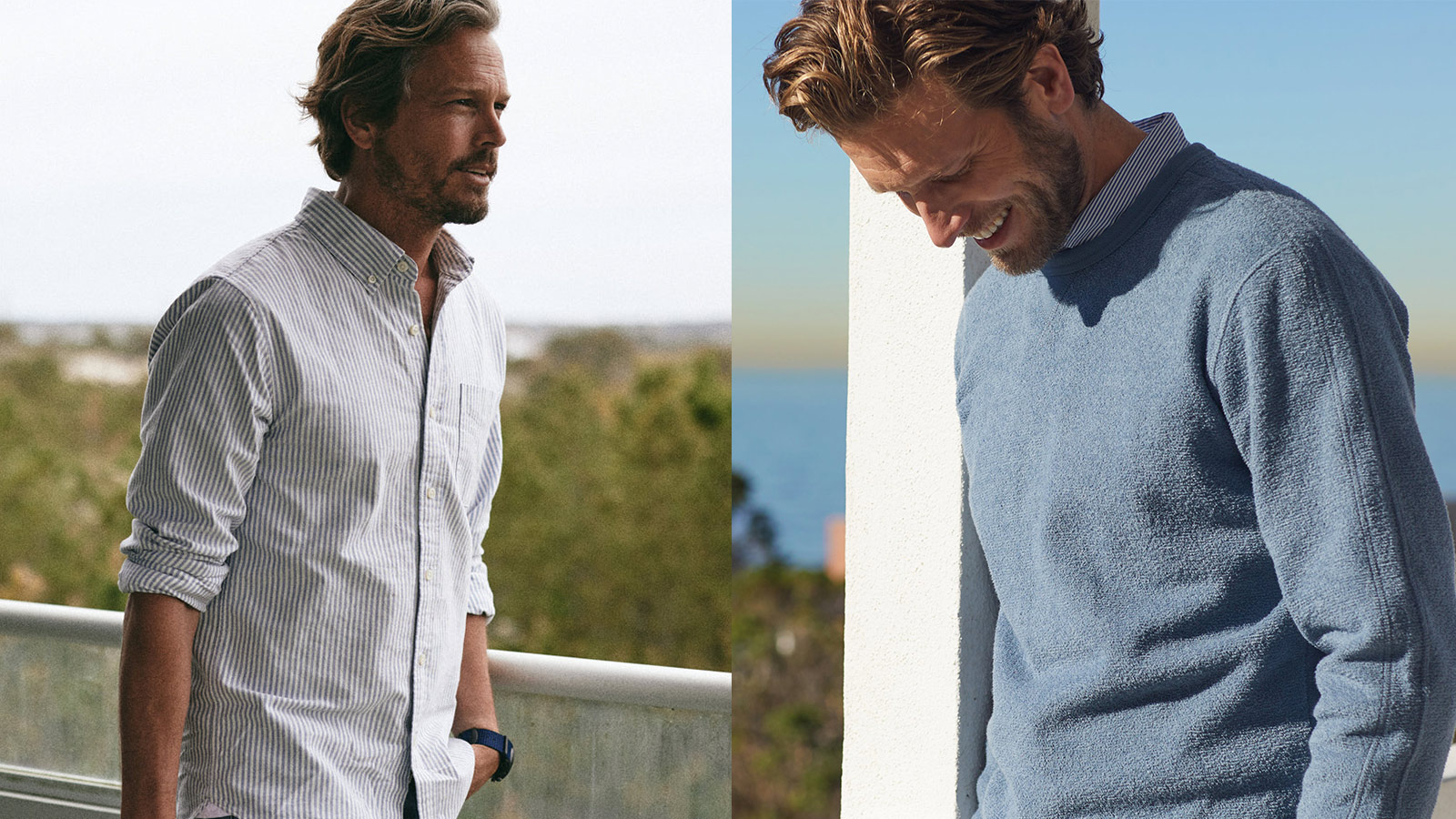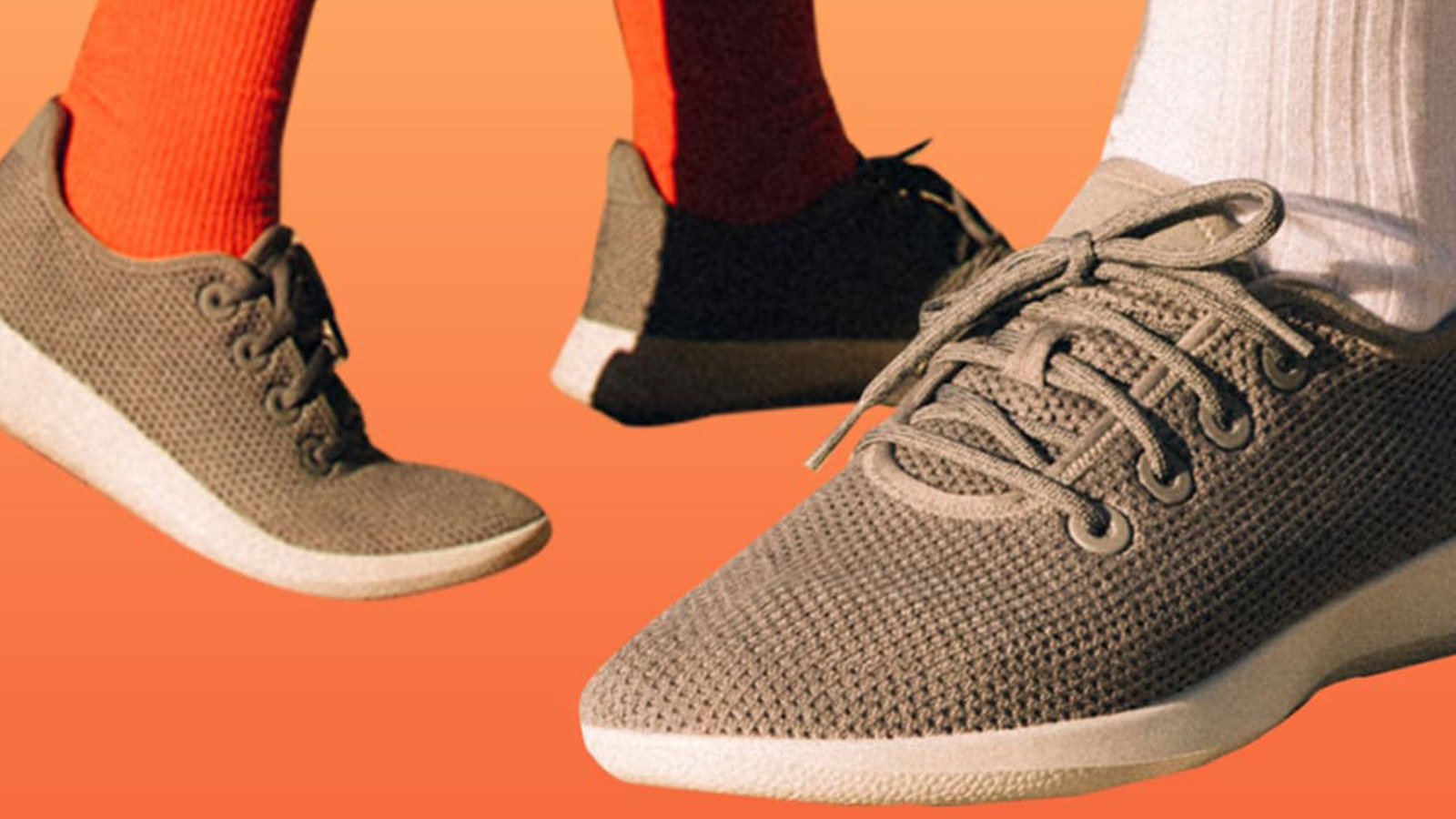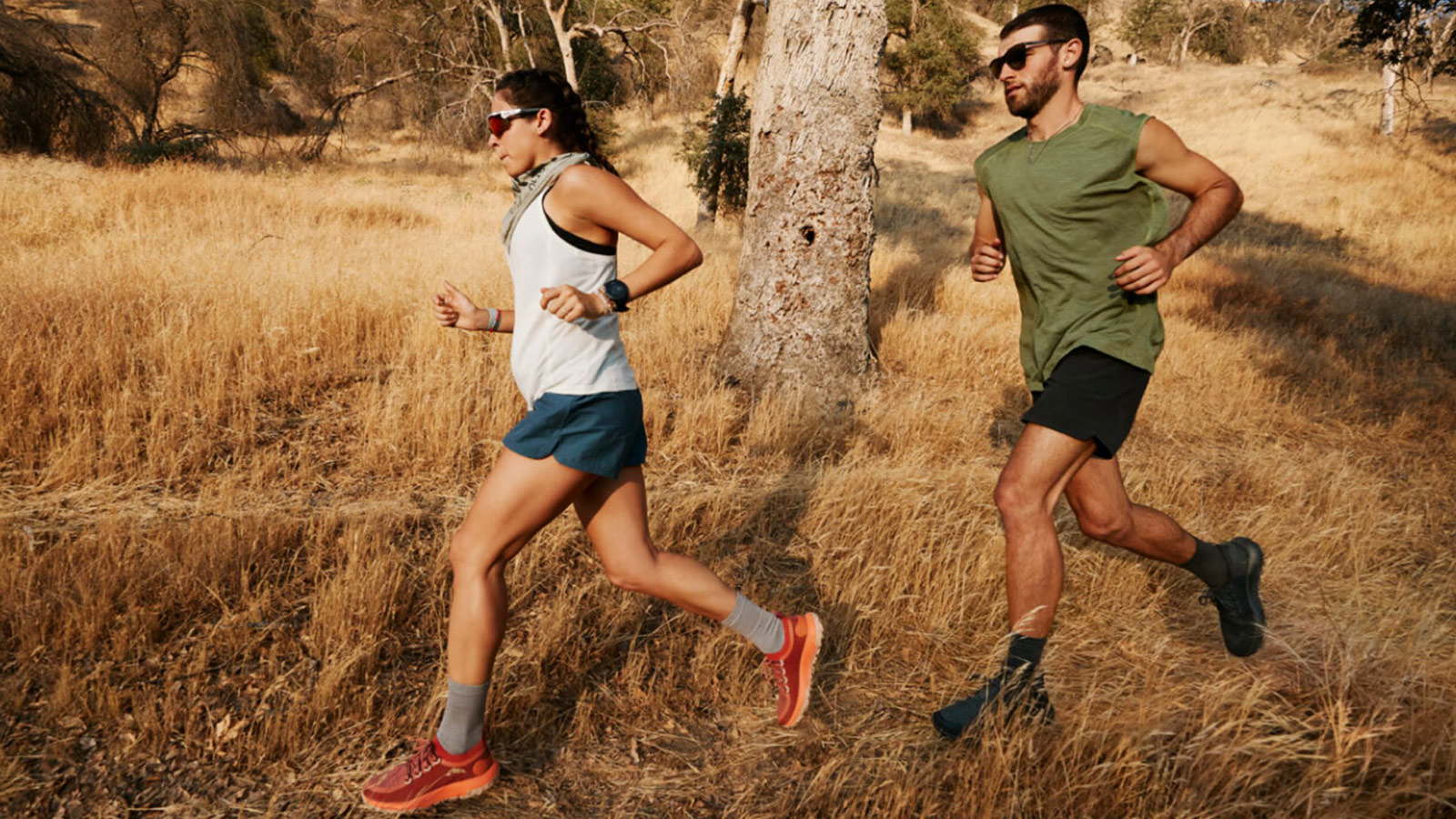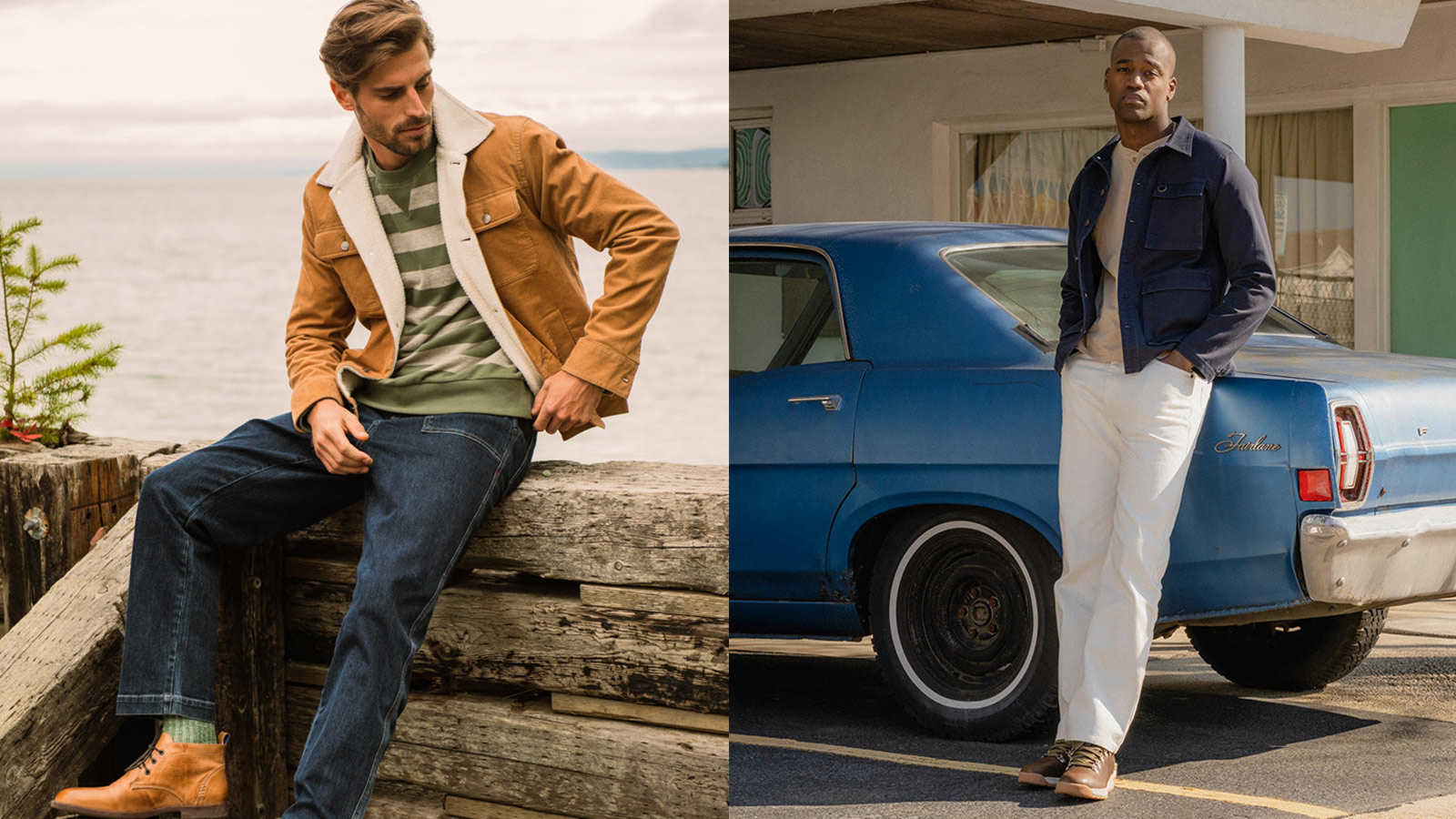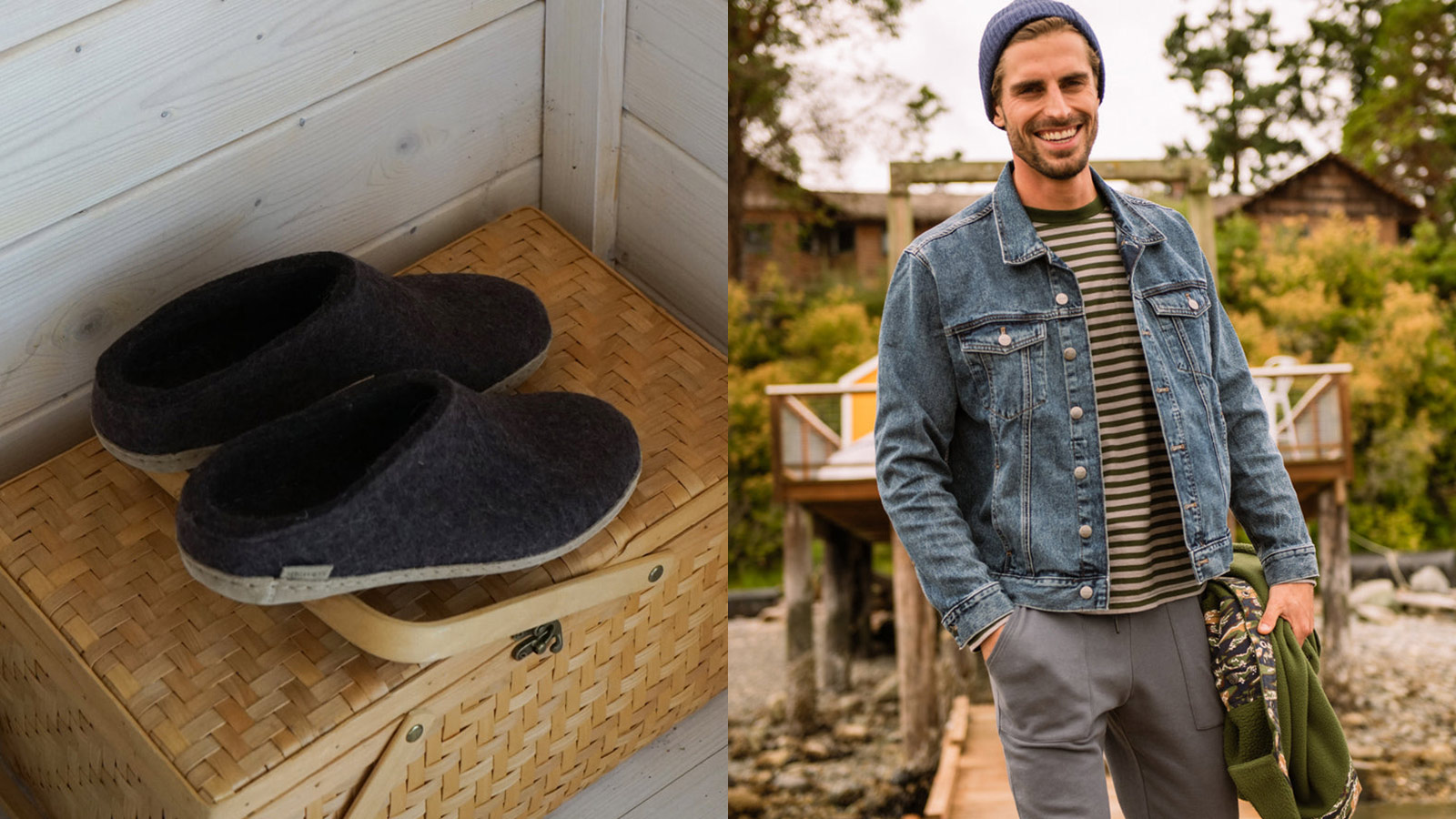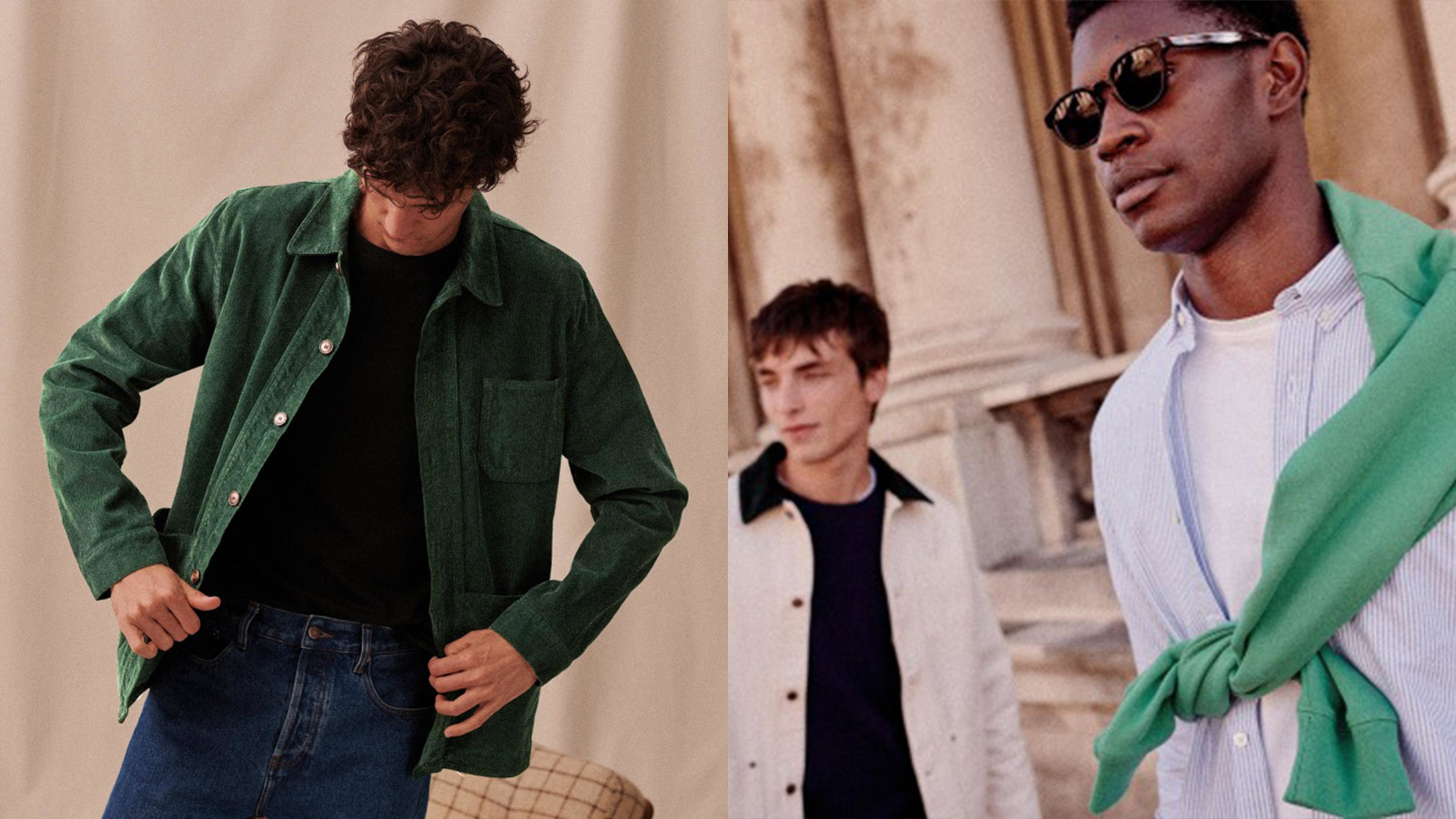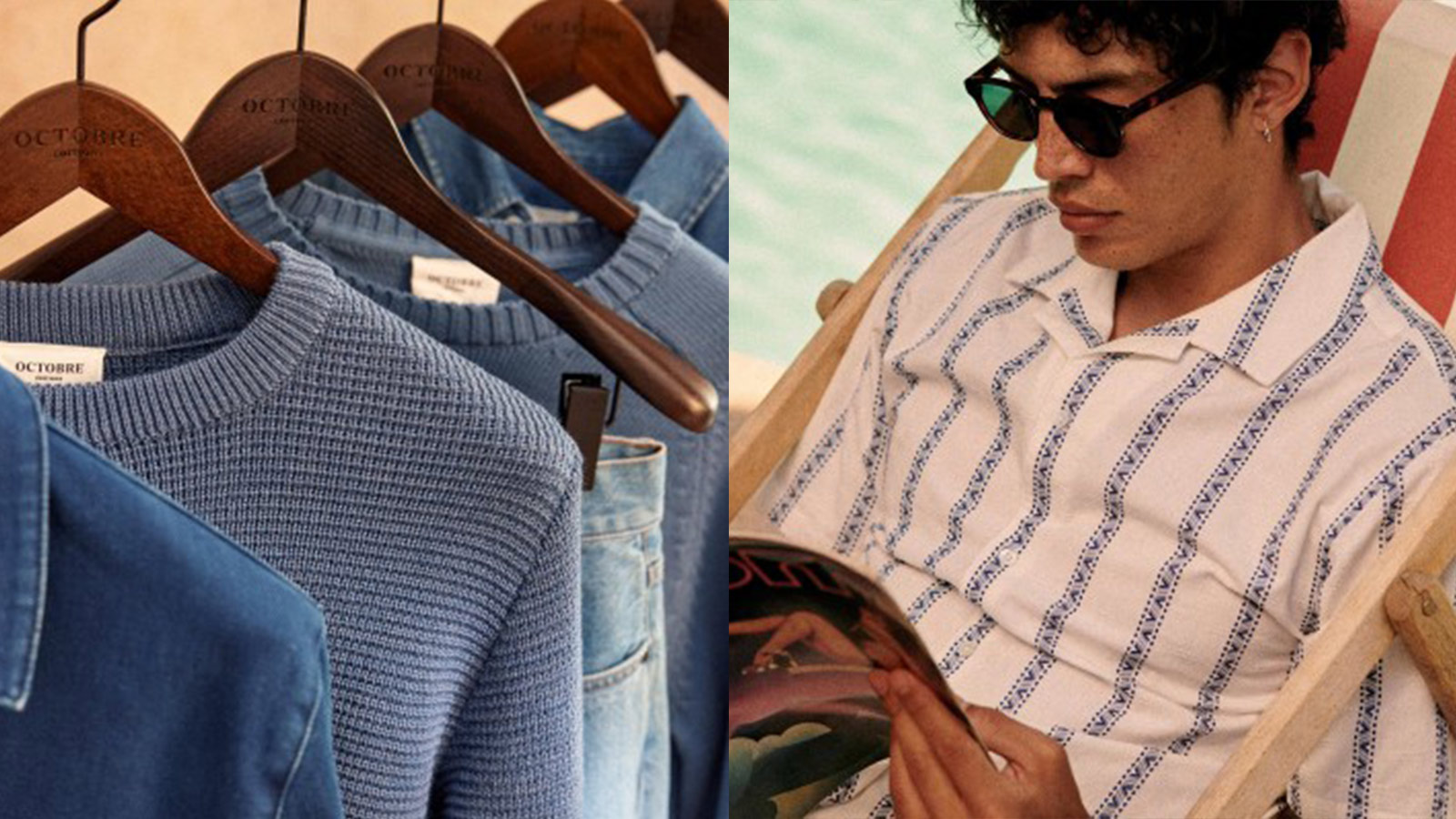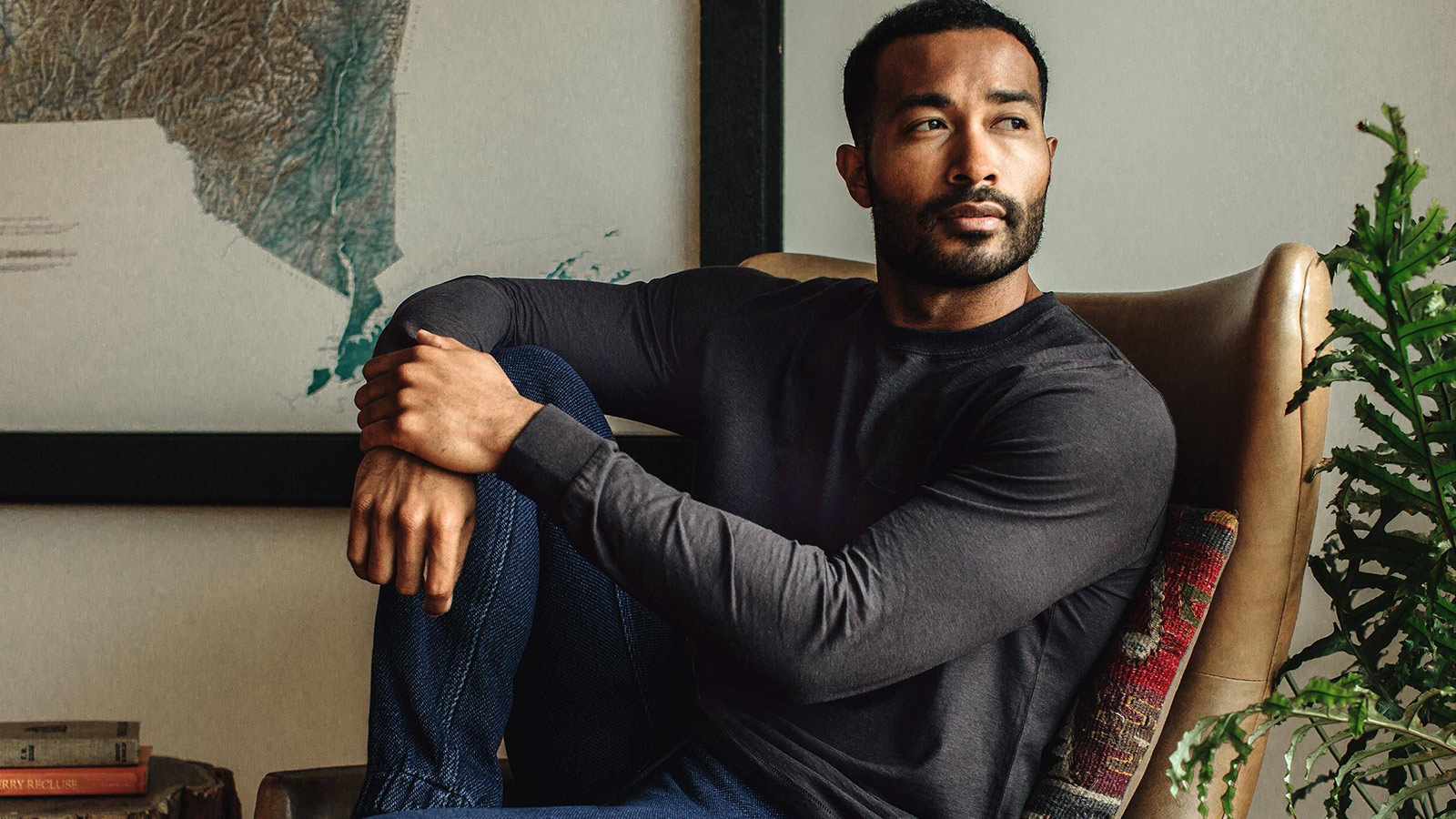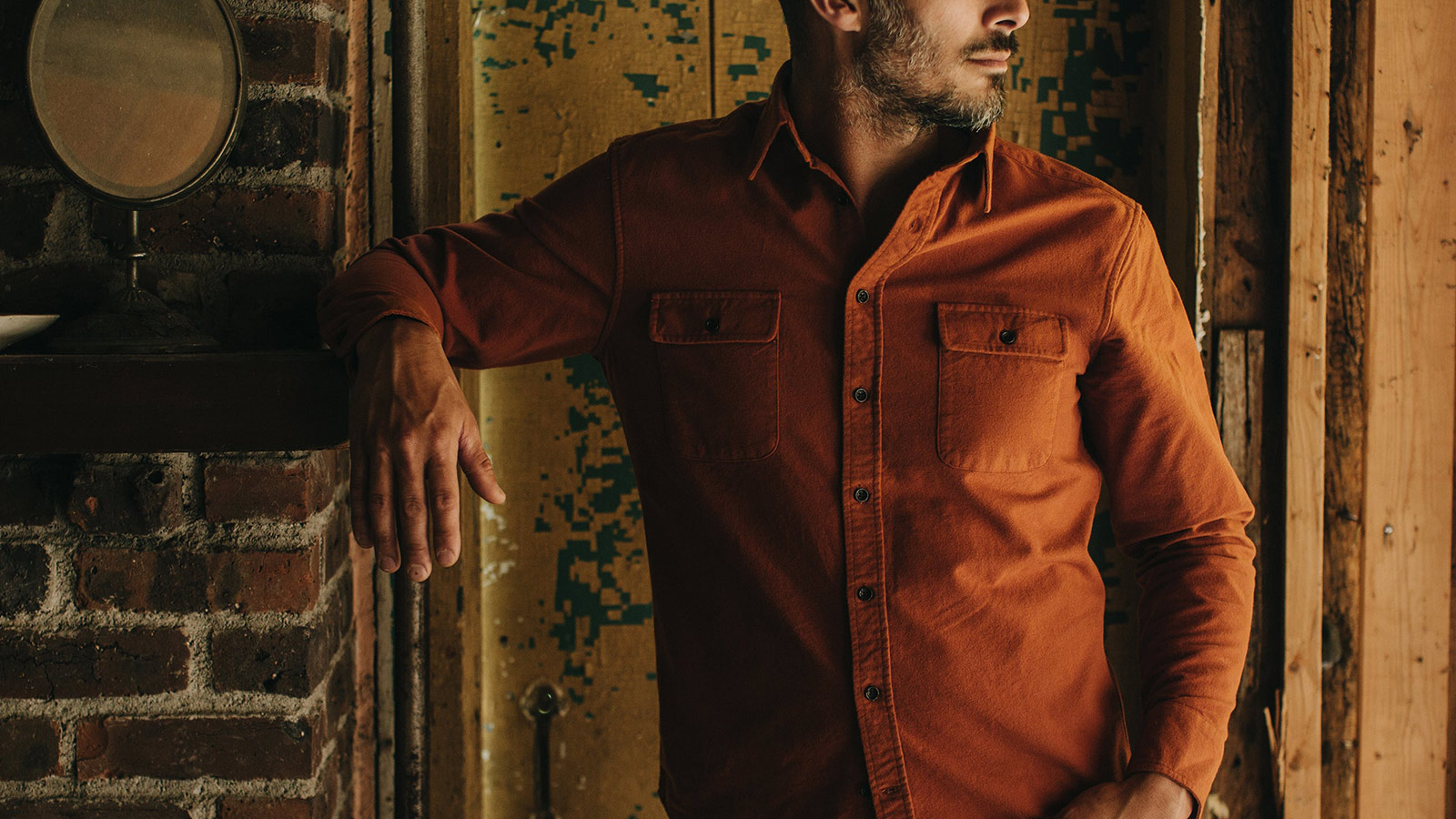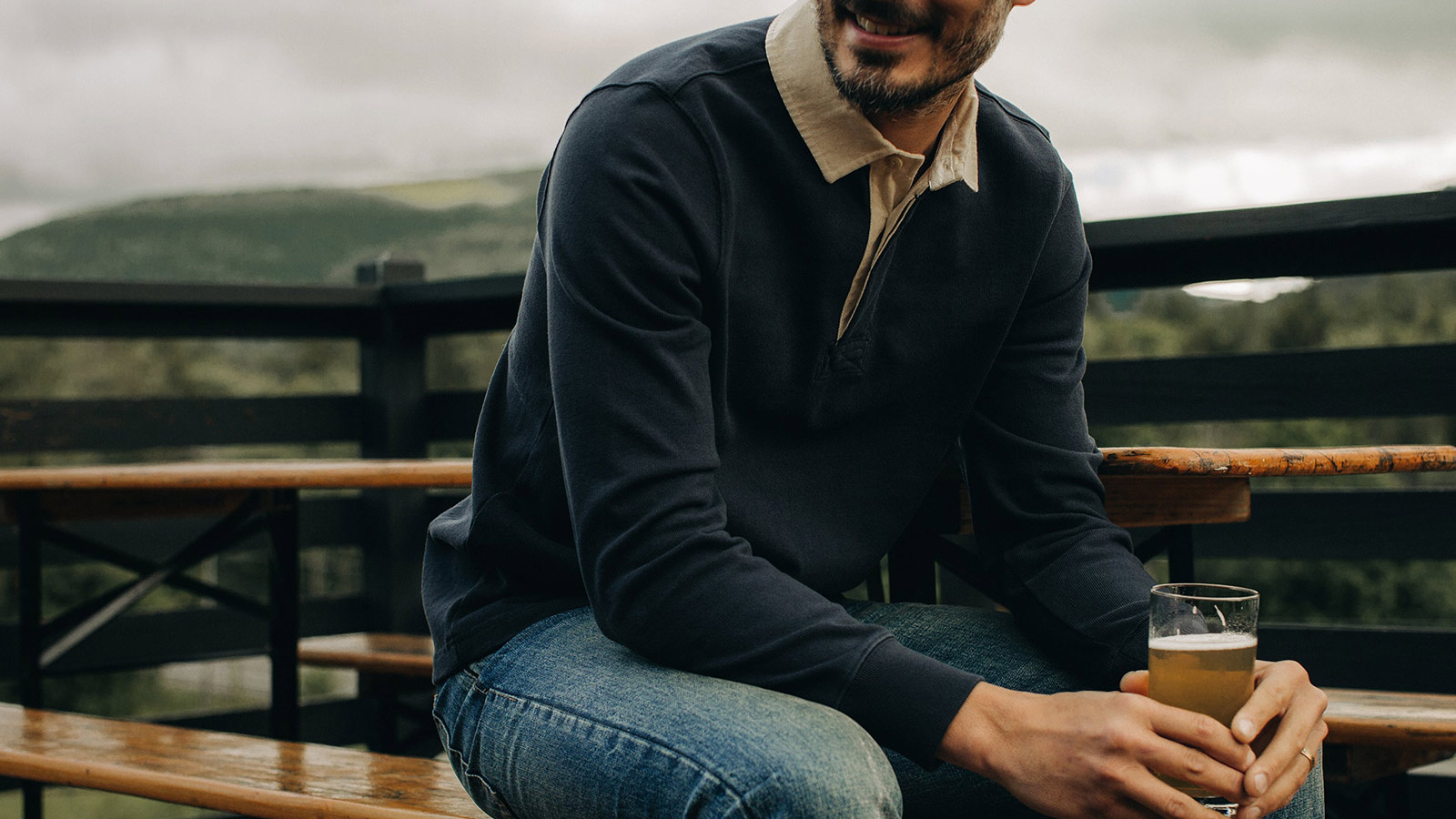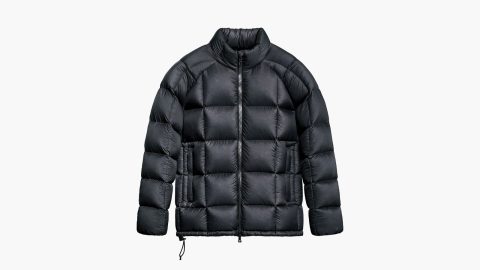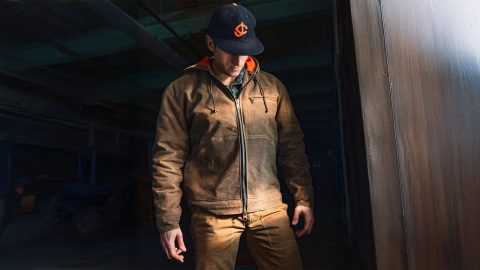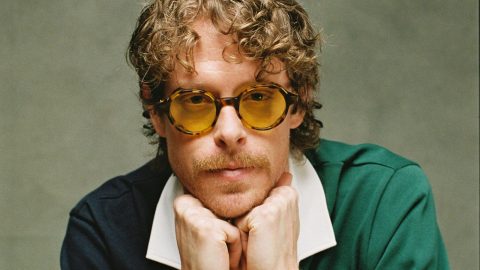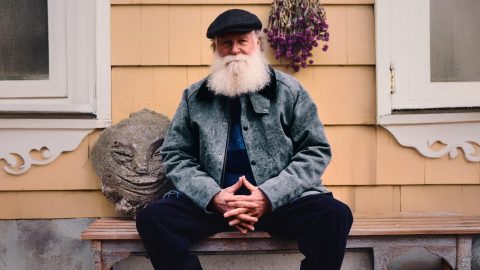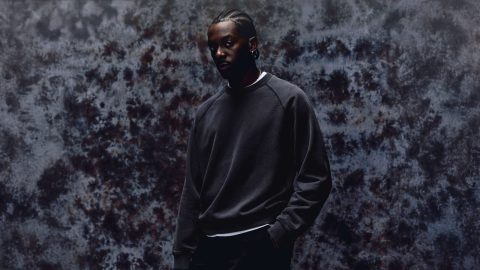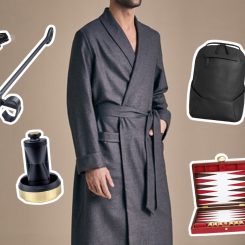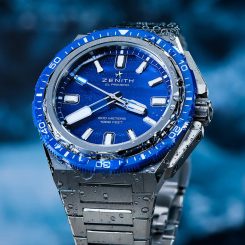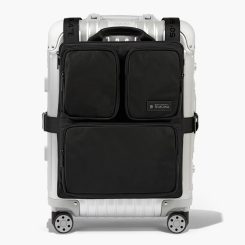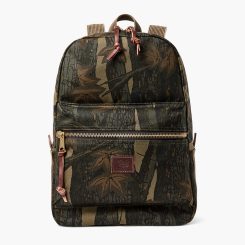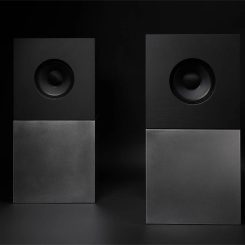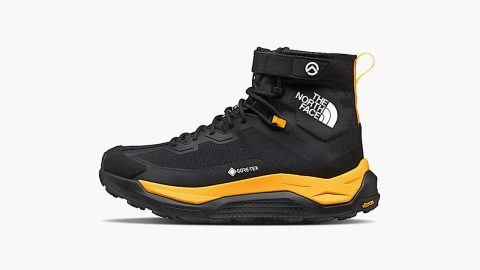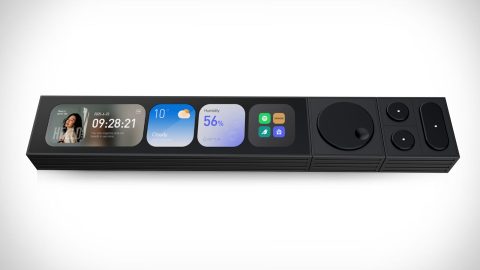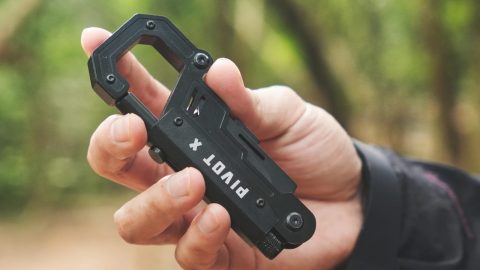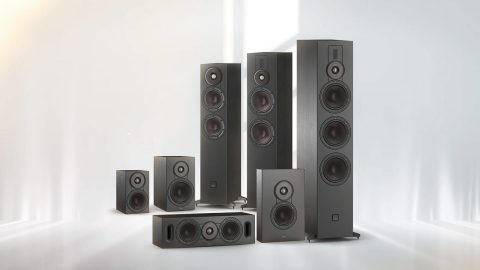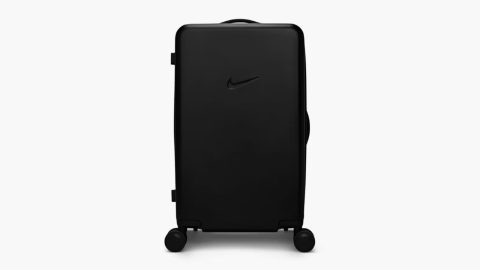Today, more and more apparel brands are taking initiatives to implement sustainable practices. This involves sourcing natural materials, upcycling recycled materials, reducing water usage, reducing waste, and more. To be a sustainable clothing company, it should start at the materials sourced, through to the factory, and end at the shipping materials. The products they make should be able to last a while and either decompose or be recycled to make new clothes. The mantra of many companies today with sustainability practices baked into their mission statements is: the less harm to the planet, the better.
With so many sustainable and eco-friendly brands now flooding the market, it can be challenging to weed through all the choices. The editors at IMBOLDN want to make this as easy as possible, so we decided to break down our top picks for the best sustainable clothing brands for men.
Buck Mason
The fast fashion brands out there want customers to buy more clothes, often without regard to the environment or the future. Buck Mason has a different philosophy: this sustainable brand strives to make clothes that you’ll wear for years and be proud to pass down to the next generation. Using organic, responsibly grown cotton as the brand’s main material, it sells tees, shirts, sweaters, hoodies, jackets, pants, jeans, as well as a range of accessories – all of which are made in safe, clean and ethically run factories. To say that Buck Mason is obsessed with quality is an understatement. Its hands-on approach yields apparel that provides consistency in fit, fabric, and quality.
Pact
Pact’s mission is to “build Earth’s Favorite Clothing Company”. Here you won’t find high fashion apparel; rather, you’ll find great, basic staples – think tees, sweat pants, hoodies, underwear, shorts, and pants. Known for the high-quality, organic cotton used in its garments, Pact knows that growing cotton organically saves vast amounts of water and uses no toxic chemicals; in addition, it sustains the health of soils and ecosystems. It is precisely for these reasons why Pact chooses to use organic cotton in each and every piece of clothing they produce. Meanwhile, the Fair Trade Certified™ seal represents Pact’s participation in a movement that is improving millions of lives, while also protecting land and waterways in over 45 countries.
Patagonia
Patagonia is a company known for a wide ranging product line that includes apparel targeted towards a diverse range of sports. In addition to clothing, the brand offers other products such as athletic equipment, backpacks, sleeping bags, and camping food. Long-known for its dedication to the environment, Patagonia has committed 1% of its total sales to environmental groups since 1985 through One Percent for the Planet, an organization of which Patagonia founder, Yvon Chouinard, was an original member. In 2016, Patagonia pledged to contribute 100% of sales from Black Friday to environmental organizations, totaling $10 million. In June 2018, the company announced that it would donate the $10 million it received from the 2017 tax cuts to “groups committed to protecting air, land and water and finding solutions to the climate crisis.”
Arms Of Andes
Arms of Andes was founded by a brother and sister born to Peruvian parents in Los Angeles. After many vacations spent in their ancestral home, the siblings were intrigued at how the people in the Andean communities depended on nature and used the earth’s resources respectfully. Being travel and nature enthusiasts, the duo were inspired to start an apparel company specializing in all things outdoors, and using royal alpaca, which they discovered was a unique fabric suitable for a range of outdoor apparel. They were also committed to leading the way in sustainable manufacturing practices with their new company. Realizing that by keeping production in one place, namely Peru, they could significantly reduce the company’s carbon footprint. Furthermore, alpaca wool is natural, renewable, and sustainably produced. Their product line ranges from shirts, hoodies, bottoms, leggings, and accessories.
Outerknown
Founded seven years ago by 11-time world champion surfer Kelly Slater and designer John Moore, Outerknown is an apparel brand rooted in environmental sustainability. All Outerknown clothing is created with high-quality, long-lasting materials and is made in a way that protects the planet’s natural resources, while providing fair wages to factory workers. Specializing in a wide range of casual apparel and accessories, Outerknown has laid out strategies to become fully circular (designing and promoting products that last and that can be reused, repaired and remanufactured) by 2030. Outerknown claims to be the ”first brand founded on a total commitment to sustainability. We are driven by a passion for responsible action, courageous change, and great clothes,” according to the company’s mission statement.
Allbirds
Allbirds is a footwear and apparel brand that loves the “amazing potential of natural materials.” Its website points out that roughly 57% of footwear and 64% of apparel is made from synthetic materials. The problem with synthetic materials? They’re made from plastics. Plastics come from oil. And oil is a fossil fuel that’s accelerating climate change. So, in an effort to transition back to renewable, natural materials, Allbirds has committed to doubling the lifetime of footwear and apparel products and reducing raw materials use by 25% across footwear and apparel products by 2025. To this end, the company always uses natural materials like wool, tree, and sugar whenever it can in the production of its footwear and clothing. Products such as sneakers made with eucalyptus fiber, sandals constructed with sustainable sugarcane, and sweatshirts made with organic pima cotton and hemp, are typical examples of Allbirds’ offerings.
United by Blue
Every day, 38,356,164 pounds of trash are dumped into our oceans. United by Blue has a commitment to turn the tide on this unfortunate statistic. Simply put, the company’s philosophy can be summed up in four words: change comes in waves. For every product purchased, United by Blue removes one pound of trash from oceans and waterways. To date, the company has organized the removal of 4.4 million pounds of trash, made possible by countless cleanups, volunteers, partners, and initiatives. Taking the brand’s commitment to sustainability even further, it has also pledged to remove all single-use plastics from its supply chain. They’ve done this by wrapping 58% of its products in paper rather than plastic and replacing all bubble wrap with cardboard as a packing material. In terms of its products, you’ll find lots of organic cotton used in its apparel, as well as deadstock (fabric made from plastic waste) recycled material used in the construction of its line of bags. Also available are products for the home made from bamboo, sustainably-sourced cotton, and vegan leather.
Octobre
Paris-based apparel and accessory brand, Octobre, offers great-looking menswear. Behind the brand is a commitment to make sustainable creations that respect our planet and its people. To do this, they choose natural materials, like vegetable-tanned leathers, and have created a strong relationship with its ateliers to avoid over-production and to always ensure the highest quality and longevity of its products. 71% of pieces in the brand’s Essentials Collection are made in organic cotton. 63% of the Essential Collection sweaters are made in Mulesing Free Mérino wool, and 100% of its small leather pieces are created with vegetable-tanned leather. In the coming years, Octobre intends to go even further for its future collections, exceeding its standards to create high-quality pieces in eco-friendly materials, at a fair and accessible price.
Taylor Stitch
Acknowledging the excessive waste in the clothing industry as a whole, menswear brand, Taylor Stitch, developed what it calls the Five Pillars of Responsibility to help the company stay the course. First up: Sourcing Responsibly. The company works hard to source materials that do not harm animals or rely on harmful chemicals and cultivation practices. If they can’t find precisely what they’re looking for, the company takes steps to develop it themselves. Second: Building Responsibly, which means working with factories and craftspeople who share Taylor Stitch’s commitment to building great products without sacrificing the environment. Third: Closing the Loop. The last thing the company wants is for its products to end up in a landfill. They strive to build gear that will outlast everything else in a person’s closet. Fourth: Creating a Community that shares the company’s commitment to the health of our planet. And fifth: Giving Back. Through giveaways, partnerships, and donations, Taylor Stitch lends its support to causes and campaigns that make a difference in people’s lives.


